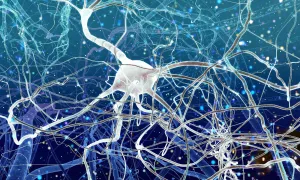Understanding and Addressing Recurrent Headaches
Recurrent headaches are a significant health issue, recognized as the leading cause of disability for individuals under 50 years old. Despite their prevalence, these headaches often go undiagnosed, leading to prolonged suffering and reduced quality of life. This article aims to shed light on the importance of proper diagnosis and management of recurrent headaches.
Why Headaches Are Often Underdiagnosed
Several factors contribute to the underdiagnosis of recurrent headaches:
- Lack of Awareness: Many people may not realize that their frequent headaches could indicate an underlying condition that requires medical attention.
- Self-Treatment: Over-the-counter pain relievers can mask the symptoms, delaying proper diagnosis and treatment.
- Limited Consultation: Some individuals might not seek medical advice, assuming headaches are a normal part of life.
- Diagnostic Challenges: Identifying the specific type of headache and its root cause can be complex, requiring thorough medical evaluation.
The Impact of Untreated Headaches
Ignoring recurrent headaches can have serious consequences:
- Reduced Productivity: Frequent headaches can impair concentration and cognitive function, affecting work and daily activities.
- Emotional Distress: Chronic pain can lead to anxiety, depression, and irritability.
- Social Isolation: The unpredictability of headaches can disrupt social plans and relationships.
- Increased Healthcare Costs: Untreated headaches may result in more frequent doctor visits and the use of stronger medications to manage the pain.
Seeking Proper Diagnosis and Treatment
If you experience recurrent headaches, it is essential to consult a healthcare professional. A comprehensive evaluation can help determine the underlying cause and guide appropriate treatment strategies. Here are some steps to consider:
- Keep a Headache Diary: Record the frequency, intensity, and triggers of your headaches to provide valuable information to your doctor.
- Consult a Doctor: Schedule an appointment with your physician or a neurologist for a thorough examination.
- Undergo Diagnostic Tests: Your doctor may recommend imaging tests, such as MRI or CT scans, to rule out any underlying medical conditions.
- Follow Treatment Recommendations: Adhere to the prescribed medication regimen and lifestyle modifications to manage your headaches effectively.
Exploring Treatment Options
Various treatment options are available for recurrent headaches, depending on the type and severity:
- Medications: Pain relievers, triptans, and preventive medications can help manage headache symptoms.
- Lifestyle Changes: Maintaining a regular sleep schedule, staying hydrated, and avoiding triggers can reduce headache frequency.
- Therapies: Cognitive-behavioral therapy (CBT) and biofeedback can help manage pain and stress associated with headaches.
- Alternative Treatments: Acupuncture, massage, and herbal remedies may provide relief for some individuals.
Final Overview
Recurrent headaches are a common yet often overlooked health concern. Early diagnosis and appropriate management are crucial to improving the quality of life for those affected. By raising awareness and encouraging individuals to seek medical attention, we can reduce the burden of this debilitating condition.




+ There are no comments
Add yours